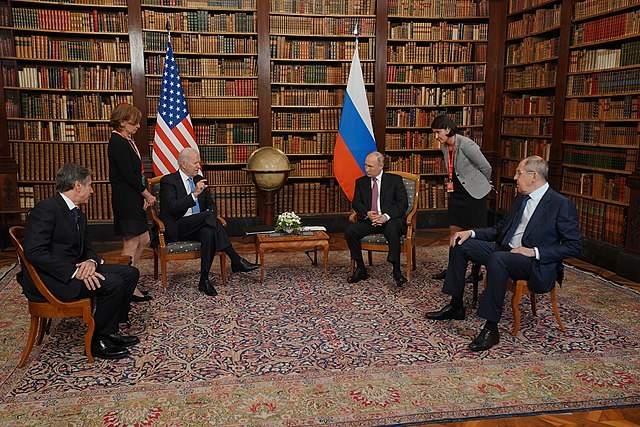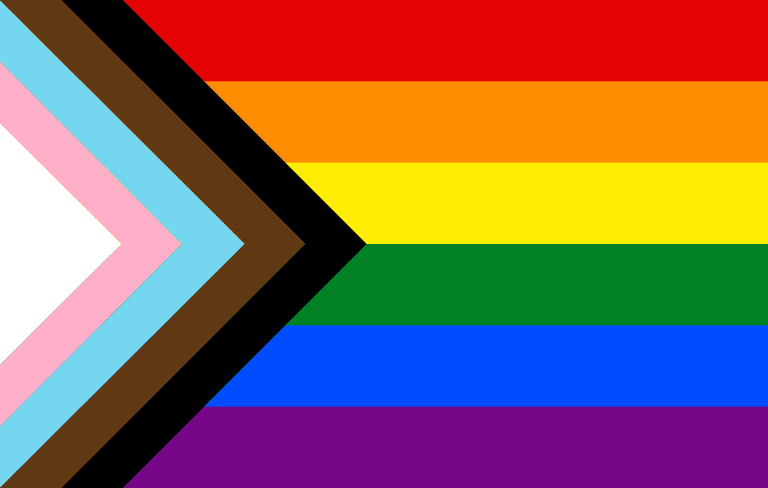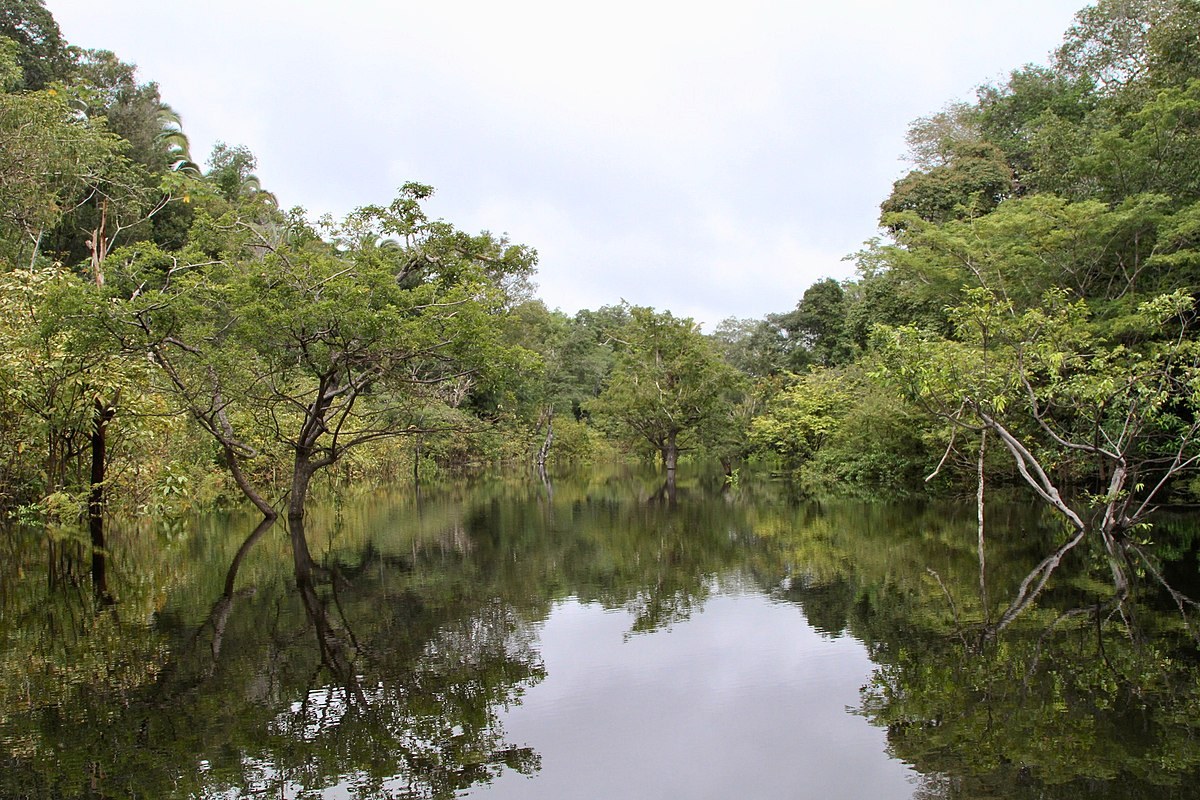Welcome to our roundup of news and current events related to ethics and international affairs! Here’s some of what we’ve been reading this past month:
 US President, Joe Biden, meets with Russian president, Vladimir Putin, in 2021. Photo credit: The White House
US President, Joe Biden, meets with Russian president, Vladimir Putin, in 2021. Photo credit: The White House
The Washington Post: Wall Street Journal reporter arrested in Russia by security service
For the first time since the Cold War, a U.S. journalist has been arrested in Russia on charges of espionage. A Wall Street Journal reporter, Evan Gershkovich, was taken from a restaurant in Ekaterinburg, Russia on March 29. Charges of espionage in Russia are typically conducted by the Russian secret service (FSB) and held in secret. Gershkovich faces up to twenty years in Russian jail. Prisoner exchanges are not uncommon, but Russian officials say it is premature to discuss this as Gershkovich has not yet been charged. According to Kremlin spokesperson Dimitry Peskov, Gershkovich was caught “red-handed,” although the Wall Street Journal denies Gershkovich was involved in espionage. Gershkovich was perhaps targeted due to his investigative pieces on the Russian economy and attitudes toward the Russo-Ukrainian War in Pskov, the homebase of the paratroop division that was active in Bucha, where Russian soldiers were accused of atrocities. The arrest also comes the day after Sergey Cherkasov was arrested in Brazil on spying charges and had posed as a graduate student in the U.S. with false Brazilian documents.
Read more about the post-liberal order, privacy during war, and human rights in Ethics & International Affairs:
Ukraine, Intervention, and the Post-Liberal Order (2022: 36-3)
Information, Privacy, and Just War Theory (2020: 34-3)
Human Rights in the Seventy-Fifth Year of the UN (2020: 34-3)
 An electric car charging in Amsterdam. Photo credit: Ludovic Hirlimann via Wikimedia Commons
An electric car charging in Amsterdam. Photo credit: Ludovic Hirlimann via Wikimedia Commons
NPR: All new cars in the EU will be zero-emission by 2035. Here's where the U.S. stands
The EU has passed legislation banning the sale of carbon-emitting cars by 2035. One caveat at Germany’s request is that e-fuel, fuel made from captured CO2 emissions, may still be used. The bill came from the EU’s desire to curb its climate emissions, a quarter of which come from transportation. Of that, 70 percent comes from car exhaust. While Poland voted against the bill, it passed in the bloc, with only three countries abstaining from the vote. In the United States, similar bills have been passed in seven states: California, Maryland, Massachusetts, New Jersey, New York, Oregon, and Washington. These states plan to ban the sale of gas-powered vehicles by 2035, and it remains to be seen if other states will follow suit. Some obstacles to the EU bill were the lagging infrastructure of electric vehicles, China’s dominance in the electric battery market, and the high cost of electric powered vehicles.
Read more about net zero emissions, global climate governance, and regulating capitalism in Ethics & International Affairs:
Which Net Zero? Climate Justice and Net Zero Emissions (2022: 36-4)
Global Climate Governance, Short-Termism, and the Vulnerability of Future Generations (2022: 36-2)
 The LGBTQ+ pride flag. Photo credit: Paul2520 via Wikimedia Commons
The LGBTQ+ pride flag. Photo credit: Paul2520 via Wikimedia Commons
DW: LGBTQ+ rights in Egypt: Queer community battles crackdown
Since the military coup in Egypt in 2013 and Egyptian President Abdel-Fattah el-Sissi coming to power, the queer community has been facing a decade of increasing crackdown from the government. While homosexuality is not outlawed in Egypt, a 2019 poll by the Pew Research Center indicated that a majority of Egyptians believe homosexuality should not be accepted by society. In 2022, the Egyptian government began incorporating anti-LGBTQ+ materials into school curriculum. Moreover, the police have increasingly been using popular apps, like Grindr, Tinder, and WhosHere to arrest LGBTQ+ members on charges of sex work. The police search the person for condoms or cash, either of which is enough to press these charges. The Egyptian LGBTQ+ community has created workarounds, checking the person’s identity through multiple social media accounts and through the LGBTQ+ network, but those new to the community are particularly vulnerable. Grindr recently issued a warning to users that their app may be used by the police, but some accuse the company of not doing enough to vet profiles.
Read more about political violence, universal values, and violence from a feminist perspective in Ethics & International Affairs:
Rethinking the Nature of States and Political Violence (2021: 35-1)
Constructing Universal Values? A Practical Approach (2020: 34-3)
Continuums of Violence and Peace: A Feminist Perspective (2020: 34-1)
 Carbon trading aims to offset carbon emissions, like by preserving parts of the Amazon rainforest (pictured), to continue to release carbon emissions with other activities. Photo credit: Alexey Yakovlev via Wikimedia Commons
Carbon trading aims to offset carbon emissions, like by preserving parts of the Amazon rainforest (pictured), to continue to release carbon emissions with other activities. Photo credit: Alexey Yakovlev via Wikimedia Commons
The Guardian: Quality standards to hold carbon offsetting industry to account
Recently, the Integrity Council for the Voluntary Carbon Market (ICVCM) published new guidelines for “good” carbon trading. The organization aims to regulate the currently unregulated carbon market. If certain initiatives meet the guidelines, the Council will give the initiative a stamp of approval, signifying to the market that this initiative has been vetted. The Council aims to help weed out initiatives that are contributing little to carbon trading aside from greenwashing an organization’s reputation. To receive approval from the Council, the initiative will have to show how the credits were generated, illustrate how they help with genuine emissions reductions or removals using scientific methods, and follow the rules on respecting the rights of indigenous and local communities. While these guidelines are voluntary to follow, the Council is hoping that these guidelines and stamp of approval will boost transparency and scrutiny in the carbon market.
Read more about global climate governance, indigenous communities, and climate justice in Ethics & International Affairs:
Fighting Fire with a Thermometer? Environmental Efforts of the United Nations (2020: 34-3)
Communities and Climate Change: Why Practices and Practitioners Matter (2022: 36-2)
